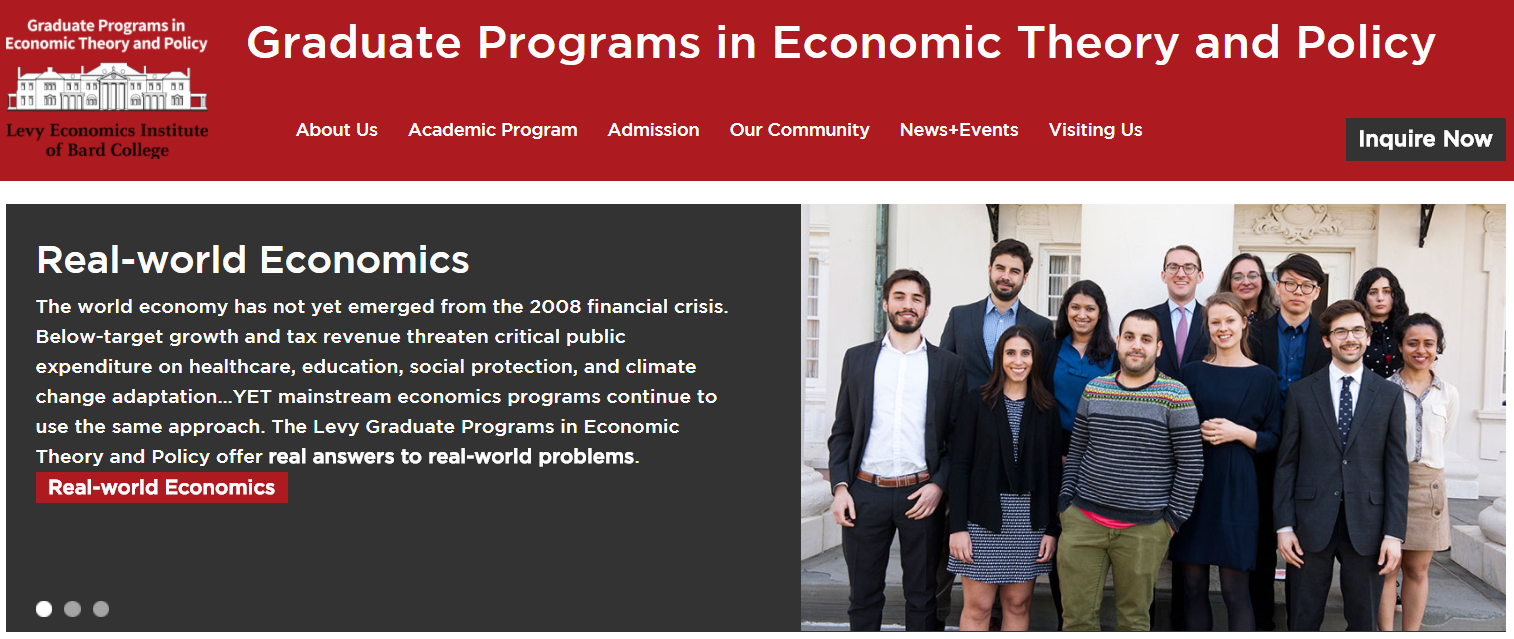Join Us for the 2018 Minsky Summer Seminar
The Levy Economics Institute of Bard College is pleased to announce the ninth Minsky Summer Seminar will be held from June 17–23, 2018. The Seminar will provide a rigorous discussion of both the theoretical and applied aspects of Minsky’s economics, with an examination of meaningful prescriptive policies relevant to the current economic and financial outlook. It will also provide an introduction to Wynne Godley’s stock-flow consistent modeling methods via hands-on workshops.
The Summer Seminar will be of particular interest to graduate students, recent graduates, and those at the beginning of their academic or professional careers. The teaching staff will include well-known economists working in the theory and policy tradition of Hyman Minsky and Wynne Godley.
Applications may be made to Kathleen Mullaly at the Levy Institute ([email protected]), and should include a letter of application and current curriculum vitae. Admission to the Summer Seminar will include provision of room and board on the Bard College Campus. The registration fee for the Seminar will be $325.
Due to limited space availability, the Seminar will be limited to 30 participants; applications will be reviewed on a rolling basis starting in January 2018.
Last year’s seminar featured the following faculty (the roster changes somewhat from year to year, but will be broadly similar for ’18):
Robert J. Barbera
Codirector, Center for Financial Economics, The Johns Hopkins University
Leonardo Burlamaqui
Associate Professor, University of the State of Rio de Janeiro
Fernando J. Cardim de Carvalho
Senior Scholar, Levy Institute; Emeritus Professor of Economics, Federal University of Rio de Janeiro
Steven M. Fazzari
Research Associate, Levy Institute; Professor, Washington University in St. Louis
John F. Henry
Senior Scholar, Levy Institute
Arturo Huerta González
Professor of Economics, Universidad Nacional Autónoma de México
Fadhel Kaboub
Research Associate, Levy Institute; Associate Professor, Denison University; President, Binzagr Institute for Sustainable Prosperity
Stephanie A. Kelton
Research Associate, Levy Institute; Professor, University of Missouri–Kansas City
Jan Kregel
Director of Research, Levy Institute; Professor, Tallinn University of Technology
Tracy Mott
Associate Professor and Chair, Department of Economics, University of Denver
Michalis Nikiforos
Research Scholar, Levy Institute
Felipe Rezende
Assistant Professor of Economics, Bard College
Pavlina R. Tcherneva
Research Associate, Levy Institute; Associate Professor, Bard College
Mario Tonveronachi
Professor, University of Siena
Frank Veneroso
President, Veneroso Associates, LLC
L. Randall Wray
Senior Scholar, Levy Institute; Professor, Bard College
Gennaro Zezza
Research Scholar, Levy Institute; Associate Professor, University of Cassino








 ShareThis
ShareThis